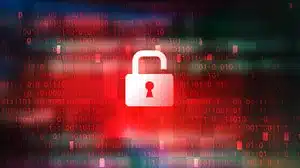
(July 17, 2023) The number of ransomware attacks declined significantly in 2022, creating optimism that this type of cybercrime was waning. Unfortunately, ransomware attacks have surged again this year. Ransom demands have also risen dramatically, with one study finding an average ransom demand of $2.2 million.
Tactics are changing as well. In a traditional ransomware attack, hackers encrypt all of an organization’s data and demand a ransom in return for the decryption key. In more than 90 percent of attacks, hackers also target backup systems, making it impossible for the victim organization to recover.
Many attackers are upping the ante, exfiltrating data before it’s encrypted. In this scenario, the attacker threatens to publish or sell sensitive data if the ransom is not paid. This gives hackers even more leverage over the victim. Paying the ransom is not advisable, however. It offers no guarantee that data will be restored, and those who pay are often victims of subsequent attacks.
Clearly, the ransomware problem is not going away. In fact, it’s getting worse. Therefore, it’s imperative that you take steps to protect your organization from ransomware attacks.
1) Email Security. About two-thirds of ransomware attacks come through phishing emails. A layered approach to email security that includes content filtering and blocking executable files makes it more difficult for threats to evade your defenses.
2) 24×7 Monitoring. According to the Barracuda Networks 2023 Ransomware Insights report, 73 percent of organizations were hit with one or more successful ransomware attacks last year. More than a third were hit with two or more. Continuous monitoring is the only way to identify and respond to threats before they do serious damage.
3) System Updates. Any delay in updating systems and applications increases the risk of vulnerabilities being exploited. Older technology is an easier target, so updates are installed quickly. Updates should be automated whenever possible.
4) Backup Protection. Attackers know ransoms won’t be paid if victims can easily restore backups, which is why backups are also targeted. Keep your backups in a separate offline environment to prevent exposure, or use immutable backup systems that cannot be altered.
5) Device Security. With most people working remotely on some level, mobile devices are being targeted more than ever. Whether your team uses company-issued or personal devices, default configurations should be updated to meet security best practices. Activity that involves company systems and data should be continuously monitored.
6) Protection Against New Threats. Antivirus software does a great job of detecting known threats. Unfortunately, hundreds of thousands of new threats are created each day. Look for artificial intelligence-powered solutions that can learn new threats and quickly apply threat intelligence from outside sources.
7) Multifactor Authentication. Simple usernames and passwords are easy to crack. Multifactor authentication adds another layer of authentication, such as a fingerprint, one-time code delivered via text, or security questions. This makes it much more difficult for hackers to steal user credentials and gain access to systems and data.
8) Security Awareness Training. When threats make it past your security tools, humans are the last line of defense. Formal training with real-world testing will help employees understand the current threat landscape, best practices for preventing data breaches, and how to respond to and report threats.
How Mainstream Can Help
Mainstream’s preventive maintenance services, advanced security tools, and in-house experts reduce the risk of a successful ransomware attack. Our team can also respond quickly to help minimize the impact should a threat slip through the cracks. Contact us to discuss how we can help you reduce the risk of ransomware attacks and disruption to your organization.
ABOUT MAINSTREAM TECHNOLOGIES
Mainstream Technologies delivers a full range of technology services in Arkansas and the surrounding region including managed technology services and consulting, custom software development, and cybersecurity services. We also offer industry-leading data center services in our Little Rock facilities. Established in 1996, Mainstream has earned a reputation for delivering quality, reliable, and professional technology services for public and private-sector customers across the United States.
Jeff Pracht
IT Business Development Manager
(479) 715-8629 Office
(501) 529-0008 Mobile
Contact Us





